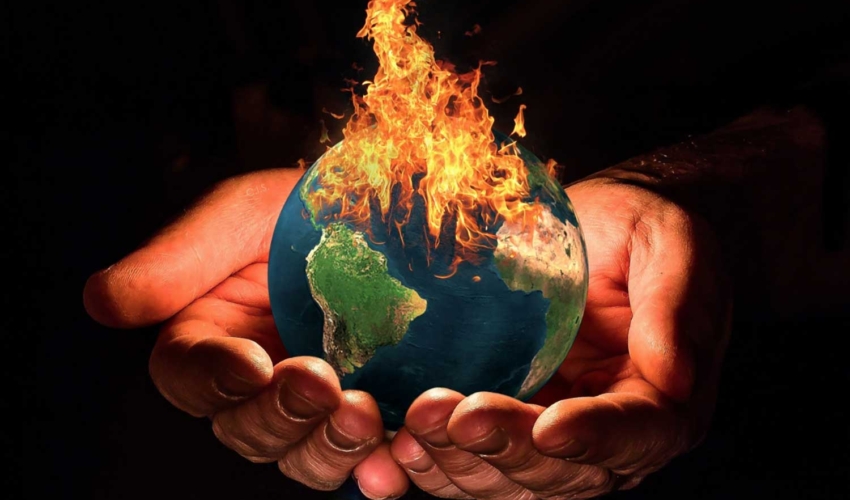On The Need to Reveal and Address The Hidden Causes of Unsustainability
The ecological emergency is becoming increasingly visible, but are we really understanding its cause well enough when it comes to designing effective solutions?
The number of alarms raised by scientists about the ecological emergency is increasing, and so is their intensity. We are now talking more and more about sustainability but do we really understand the scale of the problem and what it means? To respond to this question, it is fundamental to take a step back and look at the situation from a global point of view.
The problem of unsustainability took on a global scale when humanity started to overshoot its planetary limits in the 70’s. Since then, the ecological situation has deteriorated to the point of becoming a threat to human survival. To grasp the nature of a planetary overshoot and what a realistic solution could be, it is key to understand two fundamental concepts: humanity’s ecological footprint and Earth’s bio-capacity.
The impact of our species’ activities on the surface of the globe is called humanity’s ecological footprint, it can be synthesized as such:
- the amount of resources extracted;
- the amount of pollution released;
- the amount of damage done to the planet’s ecosystems.
Earth and its ecosystems are resilient and able to withstand humanity’s impact to some extent, this resilience is called Earth’s bio-capacity, it can be synthesized as such:
- the amount of resources than the planet can generate;
- the amount of pollution that the planet can absorb;
- the rate at which the planet’s ecosystems can repair themselves.
An overshoot of the planet’s boundaries happens when humanity’s ecological footprint is higher than the Earth’s bio-capacity, which means:
- humanity extracts more resources than the planet can generate;
- humanity releases more pollution than the planet can absorb;
- humanity destroys ecosystems faster than they can regenerate themselves.

Planetary Overshoot: When Humanity’s Ecological Footprint overshoots Earth Biocapacity
The consequences of overshooting planetary boundaries are catastrophic and scary.
Resources overconsumption: It has been estimated that Earth would need to be 1.7 times bigger than it actually is in order to be able to at our present rate if consumption.
Ecosystem destruction: According to the UN, 75% of the planet’s terrestrial ecosystems, and 60% of marine eco-systems have been either severely damaged or destroyed.
Mass extinction: More than 60% of wildlife has become extinct in less than 40 years (WWF) and 1 million species are on the verge of extinction (UN).
Pollution: An estimated 9 million people die as a result of pollution worldwide (WHO).
Climate change: According to experts, climate change alone represents an existential threat to our civilisation unless greenhouse gas emissions are significantly reduced in the near future.
These statistics are not only extremely alarming, they are also reminding us that our existence and the planet’s ecosystems are completely interrelated, and that by destroying the surface of our planet we are also destroying ourselves and our future. It is vital we understand that climate change is just one aspect of the ecological emergency among others and that these ecosystem collapses are not the cause of unsustainability, but the symptoms of it.
We love to blame externalities for the situation, but fossil fuels and palm oil are not responsible for our collective ignorance and apathy: we are. If we want to understand why the right choices are not being made, we need to take a look at the current dominant narratives and value systems driving the decision-making process of our world leaders. The global economy is driven by materialism, individualism and competition. This economic model appears to be fundamentally unsustainable in a context of the exponential acceleration of technological progress. As we are already overconsuming the resources of our planet, being in competition to accumulate and consume more can only lead to self termination.

Our efforts to reduce our individual ecological footprints are important, but that won’t be enough so long as we remain in an economic system that continues to promote and reward destructive behaviors. Yet many of us are too afraid of being marginalized to openly expose the flaws of the economic system and its narratives. Despite our fear and reluctance to break some unspoken taboos, having the courage to face the harsh reality might be a mandatory step towards solving our problems. It would allow us to understand the nature and depth of the change that is needed to be able to achieve our common goal of global sustainability.
It would open our eyes to the fact that a consumerist system that promotes competition for short term profits, unlimited accumulation of capital and compulsive growth cannot be sustainable on a finite planet. It would push us to realize that we can’t take care of the garden as long as we are fighting over the turf. It would invite us to recognize that the planet we share in common is more important than the countries dividing us.
This is why achieving sustainability will not be achieved unless we overcome our fears about deeply questioning our inherited beliefs, cultures and narratives. This offers an amazing opportunity to reinvent ourselves in ways that have never been thought possible. In fact, we already have all the technology and knowledge we need to build a better world. However, it seems that too many people are still too afraid to step out of their comfort zones to enter the space in which they could let go of the old, and start creating the new.
How about you? The courage needed to be truly part of the solution is to be found within each of us. As no collective change can take place without individual change, the change you want to see in the world starts with you, here and now.
Unsustainability, The Limits to Growth, Climate Change, Sustainability, Sustainable World, Planetary Limits, Sustainable Human, Ecology, Sustainable Transition, Future, Technology, Science, Emissions, Consumerism, Capitalism




Leave a Reply
Want to join the discussion?Feel free to contribute!